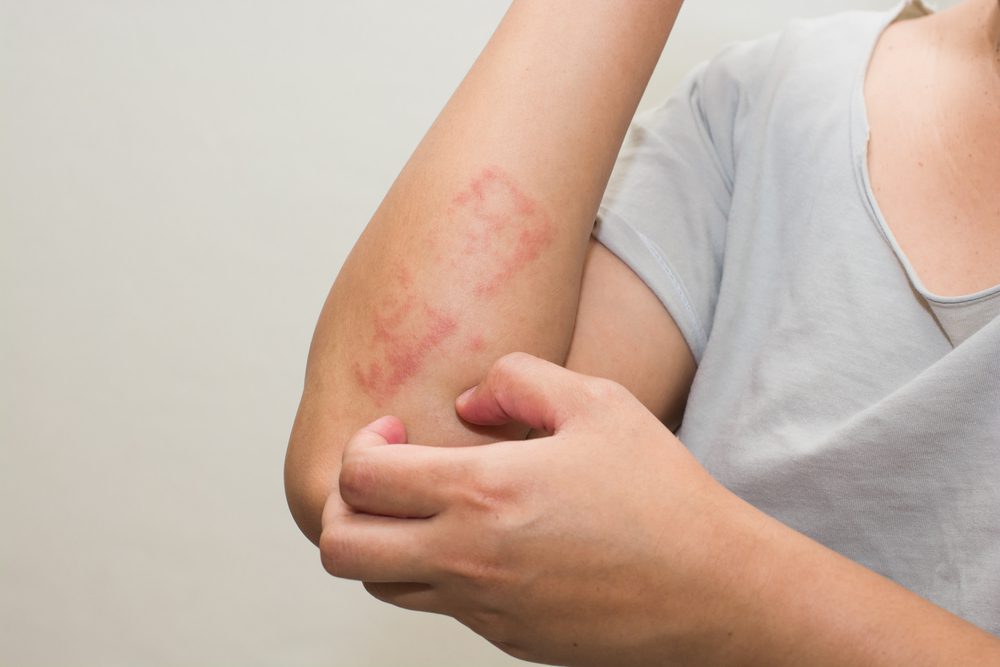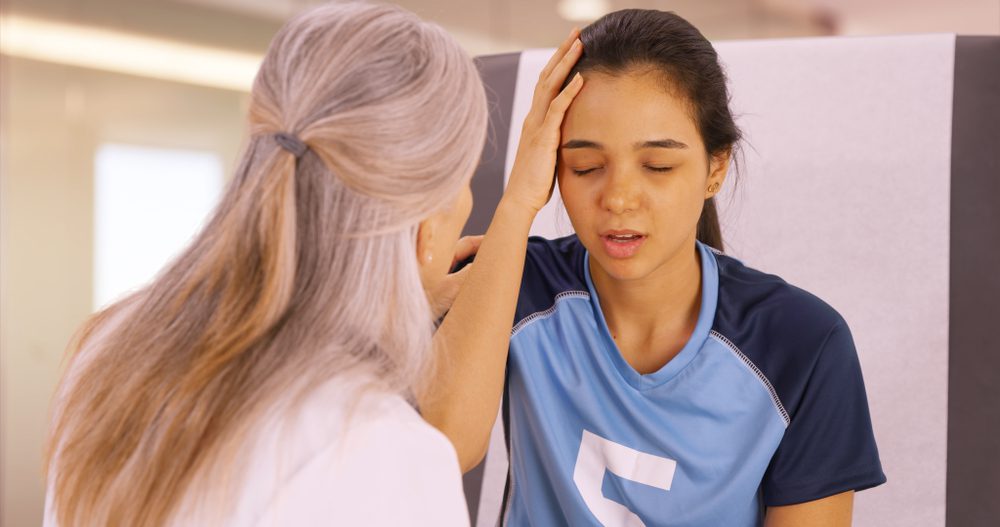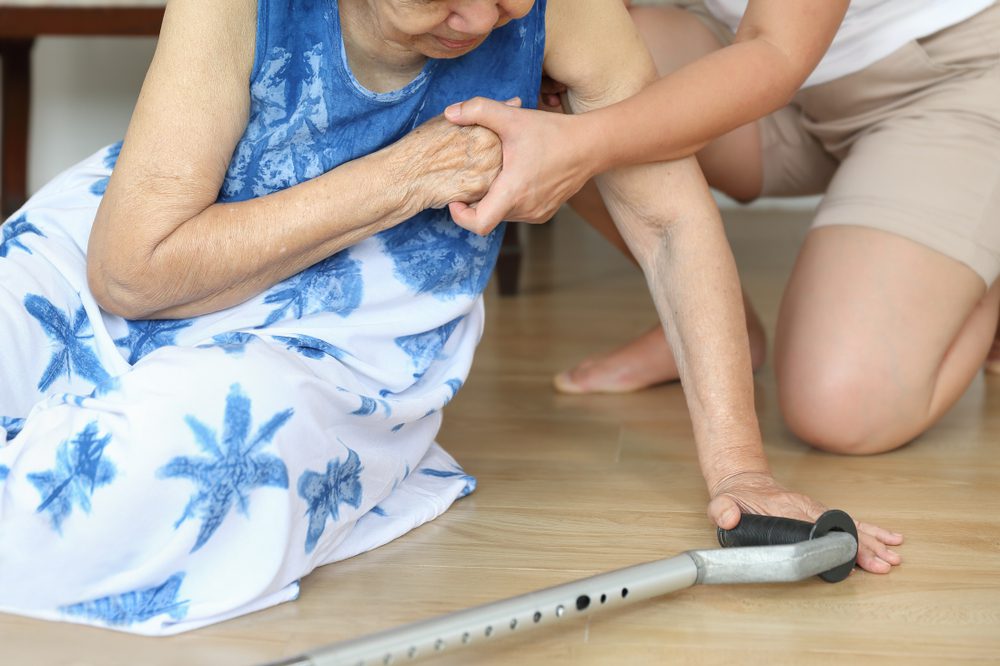What are the medical cases when we should call 911?
This question has been long debated for ages; recently, I’ve noticed countless blog posts claiming that even the smallest health issues should send us straight to the ER. Not only are those articles confusing, but they can also induce panic without any real reason.
And since we are dedicated to offering high-quality, real information to everyone, today’s experts will help us understand when we should really be worried.
Today, we’ll have a look at 8 signs you really should call 911 for yourself or a loved one. We’re also going to bust 7 health-emergency myths that will make us realize not every unpleasant symptom requires immediate medical assistance.

CALL 911: Severe allergic reactions
If you or someone else around you is suddenly starting to show severe signs of an allergic reaction, it’s definitely time to call 911 as soon as possible. The most common signs of a severe allergy are:
- Shortness of breath
- Swelling in the throat and mouth areas
- Blue lips or skin
- Extreme dizziness
- Increased heart rate
ATTENTION! Severe allergic reactions can be fatal in less than one hour; this is a real medical emergency and there is absolutely no time to hesitate.
Luckily, though, there are solutions. My in-depth post discusses everything you should know about allergy shots, including potential adverse reactions and how long this procedure really takes; you can check it out right here.
DON’T CALL: Food poisoning
Food poisoning is never fun – especially when it includes symptoms like nausea, vomiting, diarrhea, stomach cramps, or headaches. Sometimes you may feel so bad that you lack the energy to move at all.
However, most of the time this is not a medical emergency. If you’re feeling worried, though, you can call your doctor’s office to make sure you get the right natural remedies or hydration.
RJ Beam, police officer, and volunteer firefighter, also mentions that you can call your local police department’s non-emergency number; here, you can get basic information on how you can take care of yourself while leaving the 911 lines available for serious health emergencies.
CALL 911: Difficulty breathing
Darria Long Gillespie, MD, certified emergency department physician based in Atlanta, says that any type of unusual breathing is a valid reason to call 911. Here are the most common worrying symptoms:
- Irregular breathing
- Heavy breathing
- Extreme wheezing
- High-pitched breathing noises (known as ‘stridor’)
A simple 911 call can allow specialists to treat the underlying condition behind these symptoms on time to avoid any complications. In such cases, it’s usually better to stay at home and wait for doctors to arrive than transport the affected person to the hospital as their condition can worsen down the road.
CALL 911: You’re alone during an emergency
If you think you’re experiencing a medical emergency and you’re all alone at home, call 911 as soon as possible. That’s because if your condition worsens, you may simply become unable to let anybody know you need help, which can easily lead to a tragedy.
Here are the main symptoms that warrant a 911 call if you’re alone:
- Shortness of breath
- Chest pain
- Blurred vision
- Sudden inability to speak or move properly
RELATED: 6 Disease Symptoms You Should Never Ignore

CALL 911: Concussion
If you bump your head accidentally on the desk, it doesn’t necessarily mean you should call the emergency line.
However, if you or a close person suffer a serious injury caused by falling from a high distance or experiencing a car/bicycle accident, you may require immediate medical assistance. Here are the main signs that something is seriously wrong:
- Bleeding from the head or face
- Vomiting
- Fainting
- Inability to stand up
In these cases, it’s best to leave the injured person exactly as you’ve found them to avoid further risks of worsening the condition. As soon as paramedics arrive, they will know exactly how to treat the person and transport them to the hospital.
DON’T CALL: A crime that’s already happened
Many people are keeping the 911 line busy because they call after a crime such as theft, vandalism, or a stolen asset has happened. While it may seem logical to do so, you can always alert local authorities by calling the police department of your area, thus using their non-emergency line.
Since a crime has already happened, it means you’re not in immediate danger – and 911 is only for real emergencies where people’s lives are being put at risk.
Of course, if you find somebody who needs medical assistance after a crime has been committed, you should call the emergency line to request immediate medical assistance.
CALL 911: Somebody is unresponsive
If you notice anybody, ever suddenly becoming unresponsive (passing out or other signs of unconsciousness), you should definitely call 911 as soon as possible. The main reason is that you simply don’t know what has happened to that person – and if there’s anything we learned from medical-themed TV shows, is that anything is possible.
The best thing you can do is stay right next to the unconscious person without moving them and call 911. Depending on the information you can offer, specialists may give you directions on what you can do before doctors arrive (such as doing CPR).
DON’T CALL: Minor burns
Burns are always a reason for concern because they can lead to other infections, external or internal bleeding, as well as other medical complications.
And the worst part is that anything can cause minor to extreme burns: cooking, chemicals, electrical currents, and even hot pavement can lead to severe injuries.
However, if you have minor burns, you can call your doctor’s office to receive guidance on how you should care for your injury.
ATTENTION! If you or another person are in one of the following situations, do call 911 as soon as possible:
- Smoke inhalation
- Burns larger than the palm of your hand
- Burns caused by a fire

CALL 911: Serious falls
If somebody has fallen due to an accident, from a large height or onto a dangerous surface, it may be time to call the emergency line – especially if the person is unable to stand up or is in deep pain.
According to Dr. Long Gillespie, the best thing you can do is not move the person in any way. That’s because, if the person has suffered any spinal injuries, changing their position can worsen the affected area and even have permanent consequences. ‘If they have a possible injury to their neck and spine, then you want to call 911 immediately,’ Dr. Gillespie warns.
DON’T: Small cuts
Accidents can always happen especially now that most of us are cooking more at home than ever. Sometimes even small cuts can appear to be more serious than they really are – and if you’re the type of person who panics right away, calling 911 might seem very tempting.
However, it’s best to refrain from this instinct and contact your doctor’s office instead if you are worried. The doctor can evaluate the situation and guide you on how to clean, sanitize and apply a bandage to the cut.
ATTENTION! If you or another person have experienced a deep cut that won’t stop bleeding or is very large, you should definitely call the emergency line to avoid any risk of heavy bleeding or infection.
CALL 911: A fire
While this isn’t a medical emergency per se, any fire can become life-threatening in a matter of minutes.
Joshua Rogala, a criminal defense lawyer based in Winnipeg, says that ‘even in circumstances in which you think you can put it out, you should always call 911 for a fire.’ It’s always better to have authorities nearby than to have the fire spread so quickly that you can’t handle the situation properly anymore; these situations can always lead to tragedy for those involved.
Of course, you can call the local fire department as well, but since 911 is meant specifically for emergencies, you may get a quicker response there.
DON’T CALL: Child fever
For parents, there’s nothing scarier than witnessing your child getting sick – especially if we talk about newborns or small babies. Scary as it may seem, though, recording a fever doesn’t always count as a medical emergency.
If your child starts having a fever, you can call their pediatrician to start administering the right medicine for their age and weight. Additionally, you can use cool, damp washcloths until the fever starts disappearing.
Depending on how long the fever lasts, as well as other symptoms, your doctor may recommend a COVID-19 test to rule out the possibility of an infection.
ATTENTION! If you have an infant with a fever over 100.5°F, you should call the pediatrician immediately because they need medication to reduce the fever. Furthermore, if a child has a temperature of more than 104°F, you can take them to the pediatrician or the ER just to make sure there are no underlying causes.
CALL 911: Drunk driving
Rogala shockingly explains that ‘one of the most frequently under-reported criminal offenses that warrant a call to 911 is when someone spots an impaired driver on the roadway.’
In other words, if you notice any driver who appears to have consumed alcohol or other dangerous substances, you should definitely call the emergency line. Not only is this a very serious crime, but it can also threaten the driver’s life as well as that of other traffic participants.
Note that even small quantities of alcohol can have a serious impact on a driver’s ability to focus and maneuver the vehicle correctly. If you notice anybody on the wheel acting strange, a 911 call can be literally life-saving, so don’t give it a second thought!
Make sure that you never mix these medications with food!













